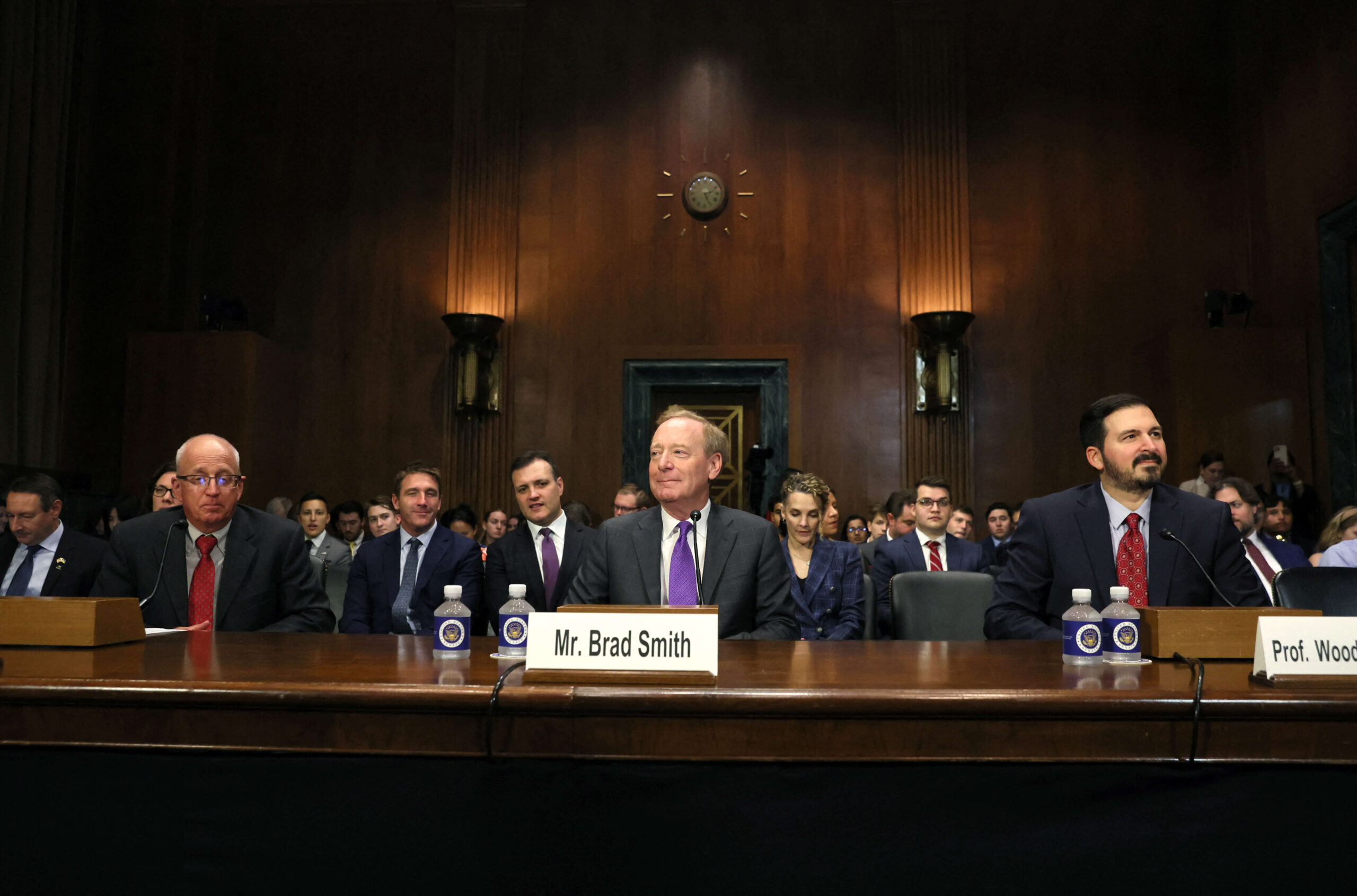On September 13, an intriguing and significant gathering took place in the heart of Washington, D.C., as the United States Senate welcomed a distinguished lineup of tech leaders to participate in a closed-door forum. Spearheaded by Senate Majority Leader Chuck Schumer, this exclusive event aimed to delve into the intricacies of artificial intelligence (AI) and explore how Congress should establish robust safeguards to regulate this rapidly evolving technology.
Among the luminaries present were renowned figures from the tech world, such as Elon Musk, the visionary CEO of Tesla; Mark Zuckerberg, the head of Meta Platforms (formerly Facebook); and Sundar Pichai, the CEO of Alphabet, Google’s parent company. Additionally, the event drew the attention of other influential personalities in the AI and technology sphere, including Sam Altman, CEO of OpenAI; Jensen Huang, CEO of Nvidia; Satya Nadella, CEO of Microsoft; Arvind Krishna, CEO of IBM; and former Microsoft CEO Bill Gates. This formidable assembly underscored the gravity of the discussions to follow.
The impetus behind this gathering was to confront the multifaceted challenges posed by the rise of artificial intelligence. As Schumer aptly stated, “For Congress to legislate on artificial intelligence is for us to engage in one of the most complex and important subjects Congress has ever faced.” Indeed, lawmakers are wrestling with the need to strike a balance between embracing the potential benefits of AI and mitigating the inherent risks associated with its exponential growth.
One of the paramount concerns voiced by lawmakers is the need for safeguards against the proliferation of deepfake technology, potential interference in elections, and the vulnerability of critical infrastructure to cyberattacks orchestrated through AI. The omnipresence of AI in modern society, including its proliferation into areas like OpenAI’s ChatGPT, has only heightened the urgency of these concerns.
Schumer’s vision for this forum was clear: to facilitate a constructive dialogue on the imperative for congressional action, the key questions to be addressed, and the process of building a consensus for responsible and secure innovation. The sessions commenced at 10 a.m. ET and were scheduled to extend until 5 p.m. ET, reflecting the depth of analysis and discourse anticipated during the day.
This event builds on a growing awareness of the potential dangers posed by unregulated AI. In March, Elon Musk, along with a group of AI experts and executives, called for a six-month pause in the development of AI systems more powerful than OpenAI’s GPT-4, citing potential societal risks. Such calls have added momentum to the debate surrounding AI regulation.
Importantly, this week’s proceedings in Congress have seen a focused exploration of AI-related issues. During a separate hearing, Brad Smith, President of Microsoft, underscored the need for Congress to mandate “safety brakes” for AI systems responsible for critical infrastructure management. Smith aptly compared these safeguards to well-established safety mechanisms in various domains, such as circuit breakers in buildings, emergency brakes in school buses, and collision avoidance systems in airplanes.
Globally, regulators are racing to draft rules that govern the use of generative AI, capable of producing text and images that are virtually indistinguishable from human-created content. In a related development, Adobe, IBM, Nvidia, and five other prominent companies announced their commitment to President Joe Biden’s voluntary AI commitments. These commitments, initiated in July, entail measures such as watermarking AI-generated content to ensure the authenticity of digital media. Tech giants like Google, OpenAI, and Microsoft had previously endorsed these commitments, indicating a collective determination to harness AI’s power responsibly.
Furthermore, the White House has been actively engaged in crafting an AI executive order, further highlighting the growing recognition at the highest levels of government of the imperative to regulate and harness AI’s capabilities for the benefit of society.
the gathering of tech leaders, senators, and industry experts on Capitol Hill was a testament to the increasing urgency and complexity of the AI landscape. It underscored the need for robust regulation, safeguards against misuse, and a collective commitment to harnessing AI’s transformative potential while safeguarding society from its potential pitfalls. As Congress delves into these critical discussions, the future of AI governance and innovation hangs in the balance.





